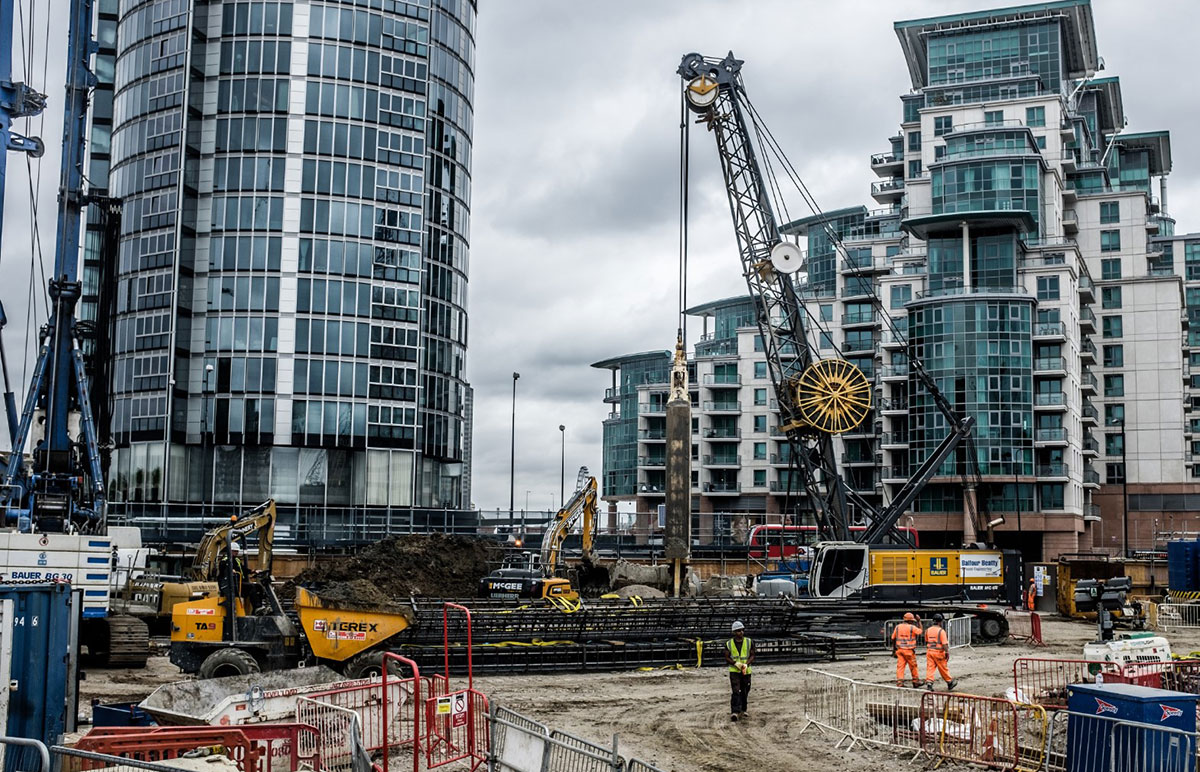Rumored Buzz on Geotheta
Rumored Buzz on Geotheta
Blog Article
Little Known Facts About Geotheta.
Table of ContentsUnknown Facts About GeothetaThe Best Guide To GeothetaThe Only Guide to GeothetaThe Ultimate Guide To GeothetaThe Of Geotheta

They carry out site examinations, accumulate samples, do lab examinations, and assess data to assess the suitability of the ground for construction jobs - Consulting Engineers. Based upon their searchings for, geotechnical designers supply referrals for structure layout, incline stability, keeping structures, and mitigation of geotechnical dangers. They team up with various other professionals, such as engineers, architectural designers, and building teams, to make sure that geotechnical considerations are integrated into the total project design and application
By evaluating the actions and properties of soil and rock, they can recognize possible geotechnical risks such as landslides, dirt settlement, or slope instability. Their proficiency helps protect against failures or accidents that can threaten lives and building. Below are some detailed responsibilities and responsibilities of a geotechnical engineer: Site Examination: Geotechnical engineers conduct website investigations to gather data on subsurface conditions.
They translate the information to understand the homes and behavior of the dirt and rock, including their toughness, permeability, compaction features, and groundwater problems. Geotechnical Evaluation and Design: Geotechnical designers evaluate the information collected during site examinations to assess the security and viability of the site for building projects. They execute geotechnical computations and modeling to examine factors such as birthing ability, negotiation, slope security, side earth stress, and groundwater flow.
How Geotheta can Save You Time, Stress, and Money.
Foundation Layout: Geotechnical engineers play a critical duty in creating foundations that can safely sustain the intended framework. They analyze the soil problems and load demands to determine the ideal foundation kind, such as superficial structures (e.g., footings), deep structures (e.g (https://www.ted.com/profiles/47432098)., piles), or specialized strategies like dirt enhancement. They think about factors such as negotiation limitations, bearing ability, and soil-structure interaction to create ideal foundation layouts
They review construction strategies, monitor website activities, and perform field inspections to validate that the style referrals are adhered to. If unexpected geotechnical concerns develop, they assess the circumstance and provide referrals for remediation or changes to the design. Risk Analysis and Mitigation: Geotechnical engineers assess geotechnical threats and threats connected with the task site, such as landslides, liquefaction, or dirt erosion.

Cooperation and Interaction: Geotechnical Continued designers function carefully with other professionals associated with a job, such as architects, structural designers, and building groups. Reliable interaction and partnership are vital to incorporate geotechnical considerations into the overall project style and building and construction procedure. Geotechnical engineers offer technical know-how, solution inquiries, and make certain that geotechnical demands are met.
Geotheta Can Be Fun For Everyone
Right here are some kinds of geotechnical designers: Foundation Designer: Foundation designers focus on creating and evaluating structures for frameworks. They assess the soil problems, lots requirements, and site qualities to establish one of the most appropriate foundation type and style, such as superficial structures, deep foundations, or specialized methods like heap foundations.
They examine the variables affecting slope stability, such as dirt residential or commercial properties, groundwater problems, and slope geometry, and establish strategies to avoid slope failures and minimize dangers. Quake Designer: Earthquake designers specialize in analyzing and designing structures to withstand seismic pressures. They evaluate the seismic hazard of a website, assess soil liquefaction capacity, and develop seismic style requirements to guarantee the safety and strength of frameworks during quakes.
They do field testing, accumulate samples, and assess the accumulated data to identify the dirt buildings, geologic developments, and groundwater problems at a site. Geotechnical Instrumentation Engineer: Geotechnical instrumentation designers concentrate on surveillance and determining the habits of soil, rock, and structures. They mount and maintain instrumentation systems that keep an eye on aspects such as dirt settlement, groundwater degrees, incline movements, and architectural displacements to evaluate efficiency and supply early warnings of prospective problems.
Geotheta Fundamentals Explained
They perform examinations such as triaxial examinations, combination examinations, straight shear examinations, and permeability examinations to collect information for geotechnical analysis and style. Geosynthetics Designer: Geosynthetics designers focus on the layout and application of geosynthetic products, such as geotextiles, geogrids, and geomembranes. They use these materials to improve dirt security, strengthen inclines, provide drainage services, and control erosion.
They often tend to be investigatory people, which implies they're intellectual, reflective, and investigative. They are curious, methodical, reasonable, analytical, and sensible. Some of them are also social, implying they're kind, charitable, cooperative, individual, caring, practical, empathetic, sensible, and pleasant - Consulting Engineers.
In the workplace setting, geotechnical engineers use specialized software application tools to perform calculations, develop designs, and examine information. They prepare reports, testimonial project specifications, interact with customers and staff member, and coordinate task activities. The office setup supplies a helpful environment for research study, analysis, and partnership with various other professionals associated with the job.
Geotheta - An Overview
They often check out project sites to conduct website investigations, evaluate geotechnical problems, and collect information for analysis. These sees entail traveling to various places, in some cases in remote or difficult terrains. Geotechnical engineers may carry out dirt sampling, conduct examinations, and screen building and construction tasks to make sure that the geotechnical facets of the job are being applied appropriately.
Geotechnical designers also work in specialized geotechnical laboratories. Geotechnical research laboratory engineers work thoroughly in these settings, managing screening equipment, running instruments, and taping information.
Report this page